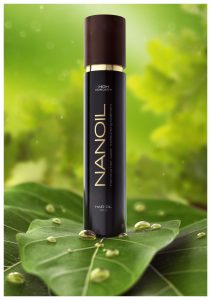How to replace camellia oil? Meet our choices
Camellia oil is obtained from Camellia japonica, also called tea tree. It is used both for external hair care and for the medical purposes. However, are there any oils that can replace the tea tree oil? Test them all and check out which is your favourite.
Camellia Oil use in skin and hair care
Can you believe that there are several species of camellia tree used for extracting camellia oil? The product has a beneficial impact on both scalp and hair, but also nails, the skin of face and body. It strengthens brittle and susceptible to damages nail plate, in a great way comes handy during make-up and on top of all that has aromatherapeutic properties. How does it take care of hair and scalp?
- intensely moisturises – retains water in the deeper layers, which is essential for proper functioning of hair; at the same time protects strands against dryness and hair ends against splitting;
- anti-oxidants – it eliminates free radicals and inhibits premature scalp ageing; makes hair less susceptible to damages; regenerates colour treated and damaged with heat styling hair;
- reduces dandruff – if you use camellia oil before hair wash, you will prevent dandruff and hair loss;
- protects against sun radiation – if rubbed in hair, protects against UV radiation, damage, and dryness; Camellia oil contains natural sun filter.
Camellia oil is commonly used in Asia. Following products include it in their composition: Sinesis, Planeta Organica, Kerastase Elixir Ultime and much more. All the cosmetics’ target is hydration, facilitate styling and smoother. Obviously, there are also other oils to easily replace camellia oil, such as castor oil, avocado oil, argan oil and coconut oil. All those oils are in scalp and hair oil Nanoil. What is the oils’ action?
Castor oil is obtained from castor oil plant. It is used on eyebrows and eyelashes to improve their condition. Apparently, most women (if not all) rub this cosmetic in the scalp. Why do they do that? Castor oil:
- strengthens hair bulbs
- inhibits hair loss
- provides gloss and smoother
- speeds up hair growth
- moisturises scalp
- has calming and antibacterial action
- scalp massage with castor oil relaxes
Avocado oil is called oil of seven vitamins. It contains iron, magnesium, zinc and vitamins A, K, B, D, H, PP and E. It can be used individually or as an addition to other cosmetics. Has a beneficial impact on scalp and hair. Here are its properties:
- delivers nutrients
- hair become healthier and scalp well taken care of
- calms irritations
- eliminates dandruff
- softens, smooths and ensures gloss
- speeds up hair growth
- regenerates damaged hair ends
Argan oil is known as a Liquid Gold of Morocco. It has a characteristic scent and beautiful colour. It is believed to be the best conditioning and healing cosmetic. How’s this possible? You just have to meet its properties:
- eliminates free radicals and inhibits scalp ageing processes
- strengthens weaken hair
- repairs damaged strands
- nourishes hair and scalp
- protects against UV radiation
- facilitates styling
- prevents breakage and split ends
Coconut oil is known for its healing and conditioning properties. It contains plenty of vitamins, minerals, and fatty acids. What’s interesting, for the culinary purposes it can replace butter or frying oil. However, what is its action on hair and scalp?
- matte hair is restored with gloss
- smooths fly-aways
- rough hair becomes soft
- moisturises and nourishes strands
- protects hair ends against splitting
- strengthens hair bulbs
- regenerates damaged hair




